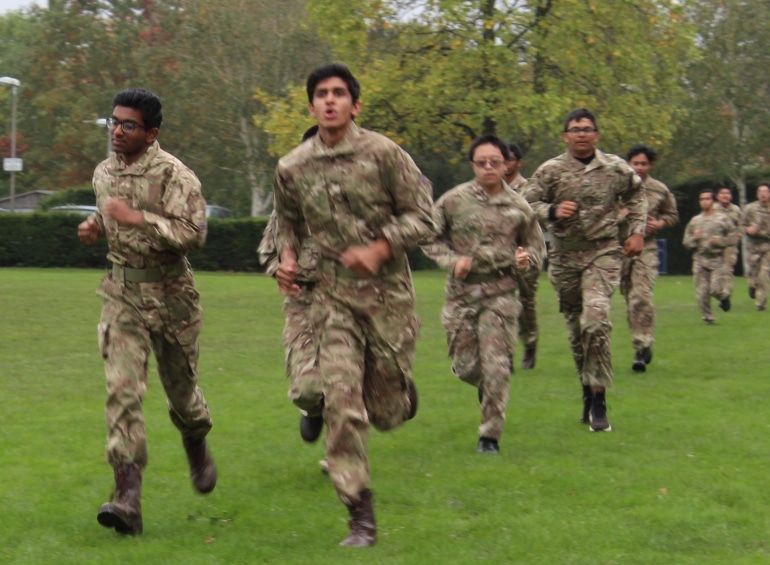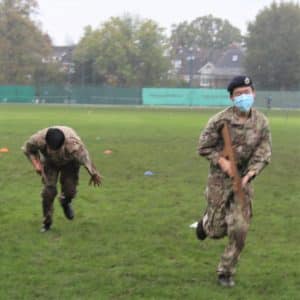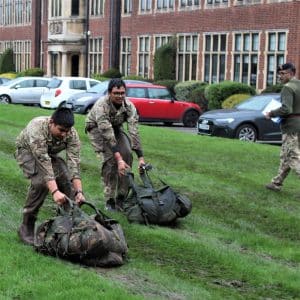
Queen Elizabeth’s School’s popular and long-established Combined Cadet Force is back in action, with boys competing against each other in a new programme specially adapted to keep them safe from the coronavirus.
 The cadets will be battling it out for the rest of the term in a series of activities focused on refreshing their basic skills in field craft, weapon-handling and drill.
The cadets will be battling it out for the rest of the term in a series of activities focused on refreshing their basic skills in field craft, weapon-handling and drill.
Contingent Commander Major Mev Armon, who is a Biology teacher, explained that the activities are being run on a two-week rotation, with older pupils alternating with younger boys, all split into their year-group bubbles. The first session, involving Year 11 and Year 13 boys, went well, he said. “They got wet, muddy and pushed themselves to achieve more than they thought possible.”
QE’s CCF, one of relatively few to be run in state schools, was established in 1992 and is sponsored by the Corps of Royal Engineers, with the Regular Army providing support in training and administration. Open to pupils in Years 9-13, it provides a training framework in which boys can develop a range of physical abilities, including endurance and co-ordination.
Mr Armon has devoted more than a quarter of a century of service to the contingent.
In response to Covid-19, the normal vertical structure of training with senior cadets instructing junior cadets has been replaced by adult-led training for the contingent’s Monday evening sessions, which are being run for the Autumn Term as a competition.
 The first two weeks are focusing on Battle Field PT [physical training], including a ‘basic fitness test run’, ‘casualty drag’, ‘fire team fire-and-manoeuvre stand’ and a ‘jerry can carry stand’. This is being run by 2nd Lieutenant Richard Scally (Head of Cricket & Head of Aquatics), assisted by Physics teacher Jonathan Leigh.
The first two weeks are focusing on Battle Field PT [physical training], including a ‘basic fitness test run’, ‘casualty drag’, ‘fire team fire-and-manoeuvre stand’ and a ‘jerry can carry stand’. This is being run by 2nd Lieutenant Richard Scally (Head of Cricket & Head of Aquatics), assisted by Physics teacher Jonathan Leigh.
The next stage will be History teacher 2nd Lieutenant Akhil Gohil’s military skills assessment, which will include target indication, shelter-building and field observation stands.
Other sessions will focus on ‘skills at arms’, and on drill and turnout.
